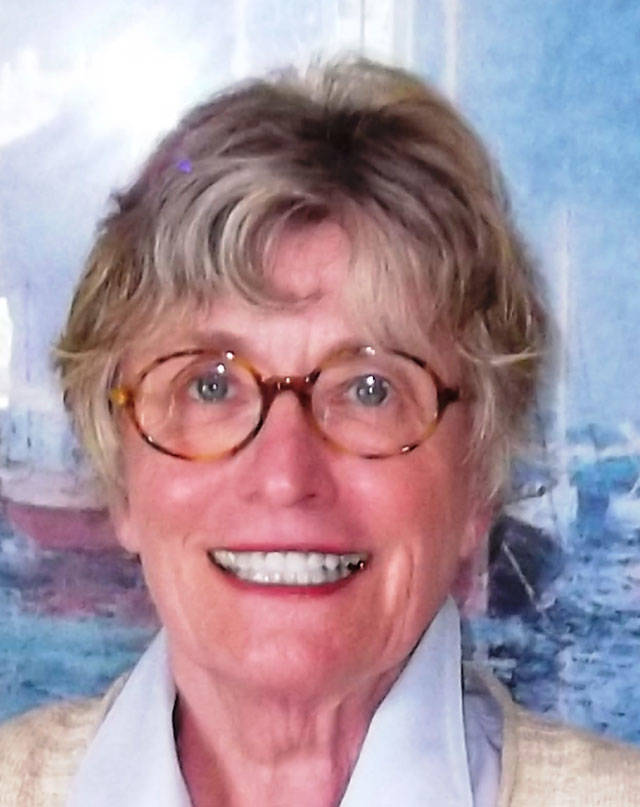Many things go into making a community great. Greater Sequim has nearly all of them such as history, the Jamestown S’Klallam Tribe, pioneer families, helping people, talented and involved people, multiple faith-based organizations, political groups for nearly all points of view, mountains, sea, hiking, hunting, crabbing and Costco.
True, we also have problems such as poverty, homelessness, drug addiction, crime, child-abusers, crabby people and vacant stores.
We have disagreements, like just about every community in the country nowadays, that are causing dissention and mistrust on all sides. We also know the divides that can cause a community to split and separate when deciding what is “good” for the community.
Today, I write about my choices for the three essential ingredients necessary for a vital community to thrive. In other words, if one is missing, the community will fail as a place to live.
The three I’ve chosen are: safety, health care and K-12 education. The delineation of these three isn’t original with me. Many of us learned the concept somewhere in our schools or work.
If depictions of the Wild West are any indication, all three have been essential for a long time. The sheriff, the town doctor and the schoolmarm are in every Wild West film that I saw.
The big three
Today, we think of safety as having police, supported by laws and a court system, and fire protection provided through Fire District 3.
We think of health care as having access to health care providers, a hospital, diagnostic testing, and ancillary providers such as therapists provided primarily through OMC and Jamestown S’Klallam and Medic One provided through Fire District 3.
Some of us include supportive living environments like skilled nursing facilities and assisted living. Here on the virtual island of the Olympic Peninsula, we want and have Olympic Medical Cancer Center.
We think of K-12 as the Sequim School District (SSD), Olympic Academy homeschoolers, faith-based and private schools. Most of our school children are enrolled in SSD.
Most of my experience has been with the delivery of health services to a community, both rural and urban. Health needs of people are the same in complexity and variety; the need for health services are the same. The biggest difference in delivery in a rural versus an urban setting is the rural health care provider doesn’t have the population to develop highly sophisticated services such as cardiac catherization labs. Hence, the need for helipads to allow the transport of critical patients.
I have consulted in rural facilities that are so small, the health provider and nursing staff are called upon to treat patients with strokes, heart attacks, broken bones, drug overdoses and moms having babies, all of which can occur during the same shift.
Their extraordinary skill meets the definition of awesome.
They do it, just like OMC and Medic One does it – because it is essential to a community. Otherwise, people move on.
I have only recently explored the services provided by Fire District 3 and already, I am impressed with the district’s sense of purpose and responsibility for the safety and security of residents of greater Sequim. I wrote in my last column that the fire district always answers the phone and responds. Otherwise, people could die. Otherwise, people move on.
An active police or sheriff’s department involved in prevention as well as catching bad people, a focused office of the prosecutor of crimes and a responsible court system are essential to build trust and sustain the security of the community. A community cannot survive without law and order. Otherwise, people who can, move on.
If our community’s response to school bond issues is any indication, there are many that will argue with my choice of K-12 education as being essential. Of course, I argue for the community’s responsibility to give all youth an equal chance to succeed, not to mention the future positive and productive contribution of educated youth.
Of my three choices, K-12 education is the one that struggles the most in our community, at least in my opinion. I wish I better understood the problem of mistrust that seems to exist between the school district and the community.
Parents will move on if they don’t think their children are getting the best education or won’t move here if they don’t think they will.
Community makes or breaks
All three of these essentials belong to and are governed by the community. They are all some form of government — hospital district, fire district and school district — with the taxing authority to ask the community for money.
The only district not dependent on tax revenues for survival is OMC, although its financial health is dependent on the viability of Medicare, Medicaid, and the Affordable Care Act (Obamacare).
Greater Sequim elects three of seven hospital commissioners, three fire district commissioners and five school board members. The only requirement to run for these positions is that the candidate be of age and live in the area they wish to represent.
Once elected, they share policy and fiduciary responsibility for the organization with the other elected board members. It’s a big deal. Our job is to vote and vote responsibly.
Our job is to hold elected officials accountable; we are, after all, their only boss.
Our job is also to support them. It’s been a tough few years for elected government officials. Our country is in an “anti-government” mood.
Careful what we wish for.
Personally, I advise against throwing everything up in the air and seeing what lands without being broken. Most of you would too.
Greater Sequim is great and made so by all the people dedicated to providing these essential services.
We just must keep up and live up to our greatness.
Bertha Cooper spent her career years as a health care organization and program administrator and consultant and is a featured columnist in Sequim Gazette. Cooper has lived in Sequim with her husband for nearly 20 years.



